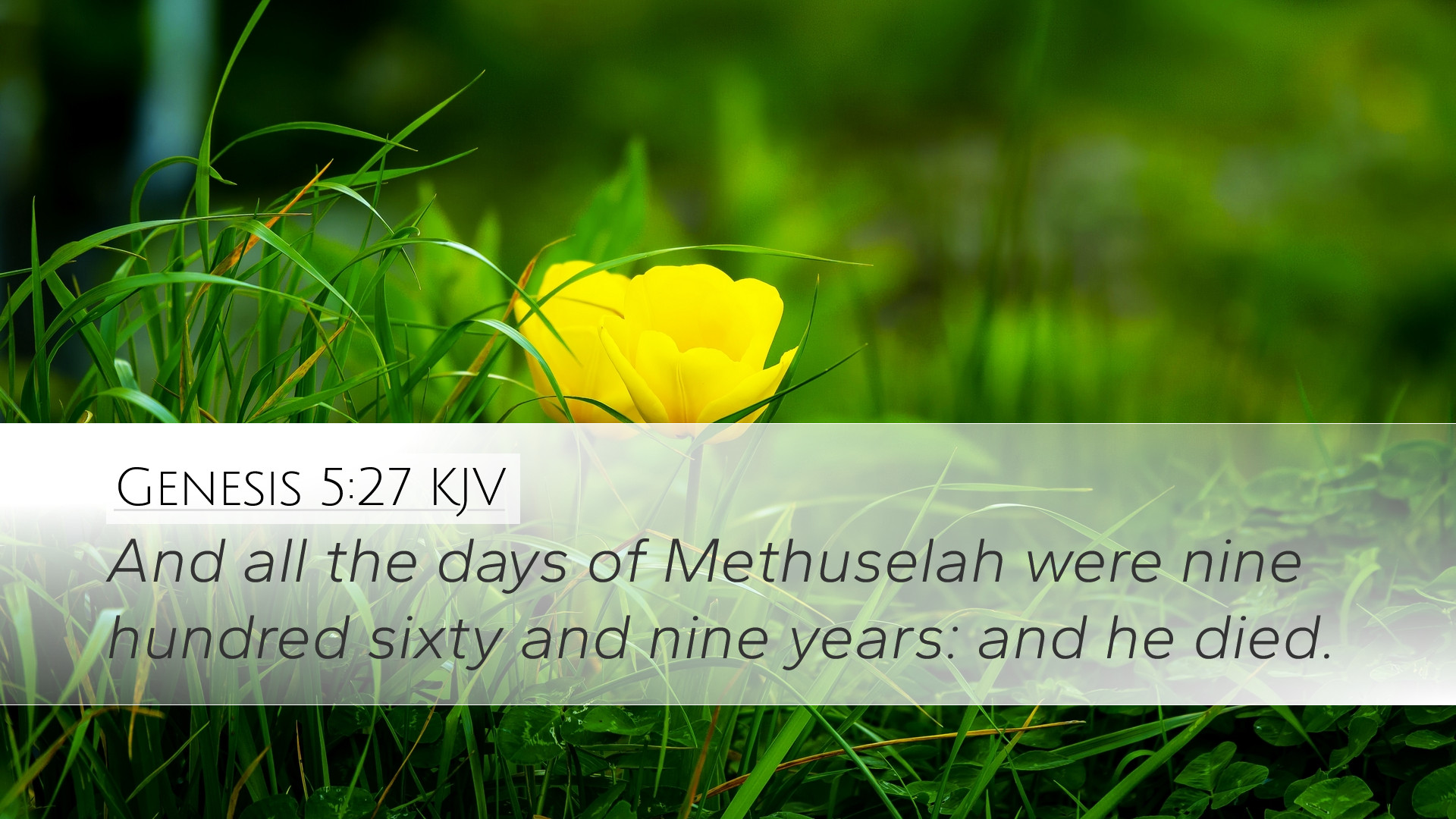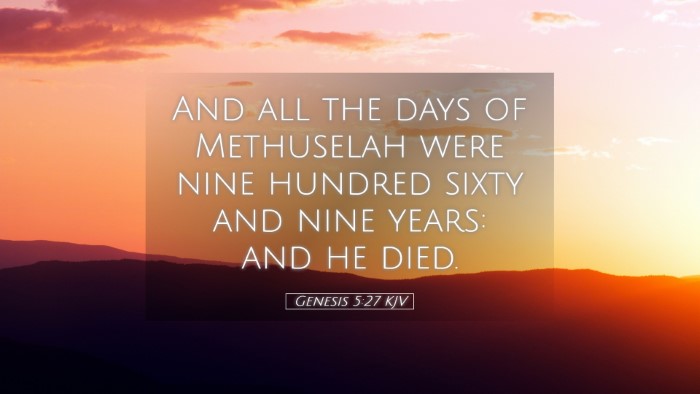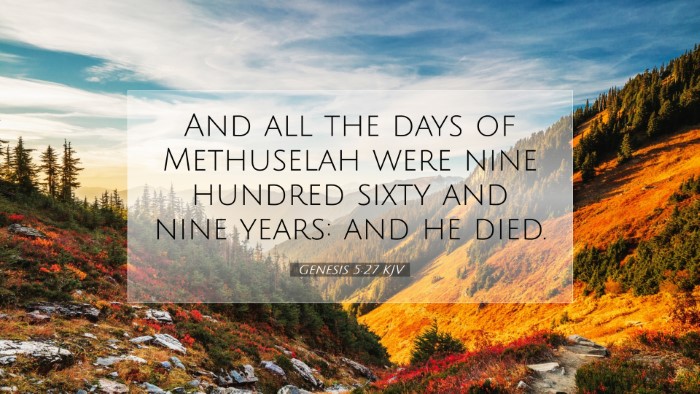Commentary on Genesis 5:27
Genesis 5:27 (KJV): "And all the days of Methuselah were nine hundred sixty and nine years: and he died."
Introduction to Genesis 5:27
This verse concludes the account of Methuselah, the longest-lived human mentioned in the Bible. His life, spanning 969 years, carries significant theological implications that resonate with the themes of longevity, judgment, and faithfulness found throughout Scripture. Here we will examine the insights of various public domain commentaries on this verse.
Insights from Matthew Henry
Matthew Henry emphasizes the remarkable longevity of Methuselah as a sign of God’s forbearance before the Flood. He notes:
- Divine Patience: The extended lifespan of Methuselah illustrates God's patience with humanity before judgment was executed. It serves as a reminder that God's delays in judgment are not indications of His indifference but of His mercy.
- Symbol of Grace: Methuselah's name is significant, often interpreted as "his death shall bring." This suggests a prophetic element tied with the coming judgment that would occur in Noah's time.
Henry points out that Methuselah’s death marks the end of an era, as he lived longer than any other human, yet he also represents the fragile reality of life, leading to an inevitable conclusion even for those who live such extended lives.
Insights from Albert Barnes
Albert Barnes draws attention to the numerical aspect of Methuselah’s life:
- Significance of Age: The age of 969 years signifies not just the longevity of Methuselah but also serves as a contrast to the eventual decline of life spans post-flood. Barnes notes that this portrayal speaks to the original creation where humans lived much longer, indicating a change in God’s creation order due to sin.
- Life and Death: Barnes posits that Methuselah’s life being recorded alongside his death is a somber reminder about the certainty of death. Despite his extraordinary lifespan, it does not exempt him from mortality, emphasizing that "it is appointed unto men once to die" (Hebrews 9:27).
This connection serves to remind believers about the transient nature of earthly existence, regardless of the length of days granted to an individual.
Insights from Adam Clarke
Adam Clarke provides further cultural and genealogical context regarding Methuselah:
- Historical Context: Clarke discusses how Methuselah fits within the genealogical records of Genesis, emphasizing the importance of family lineage in understanding Biblical history. He notes that Methuselah is the grandfather of Noah, placing significance on his life in the unfolding narrative of the Flood.
- Typology of Christ: Clarke intriguingly notes that Methuselah can be seen typologically, illustrating a figure of Christ in that his life was a prolonged witness to God’s grace before judgment—much like Christ’s ministry offers grace before the final judgment.
He further emphasizes the benefit of understanding Methuselah’s age in the context of humanity's relationship with God, signifying a call to live with a consciousness of divine judgment while embracing the grace afforded through faith.
Theological Reflections
From these commentaries, we can glean important theological reflections:
- God’s Patience: The long life of Methuselah serves as a reflection of God's patience with humanity. It invites a serious assessment of how we respond to God’s warnings and grace within the context of our own lives.
- Mortality: The inevitability of death underscores the need for believers to live intentionally, aware of their mortality and the calling to bear witness of their faith.
- God's Sovereignty in History: Methuselah's life constitutes a crucial link in the chain of biblical history. His existence and the subsequent judgment highlight how God orchestrates events for His divine purposes.
Conclusion
Genesis 5:27 serves as a powerful reminder to believers regarding God’s grace, mercy, and the reality of judgment. Methuselah's life stands not just as a numerical record but as a profound narrative that continues to educate, challenge, and encourage those in ministry, academia, and personal faith journeys. As we study this verse, may we strive to honor the lessons it imparts about living faithfully in anticipation of God's sovereign plan.


